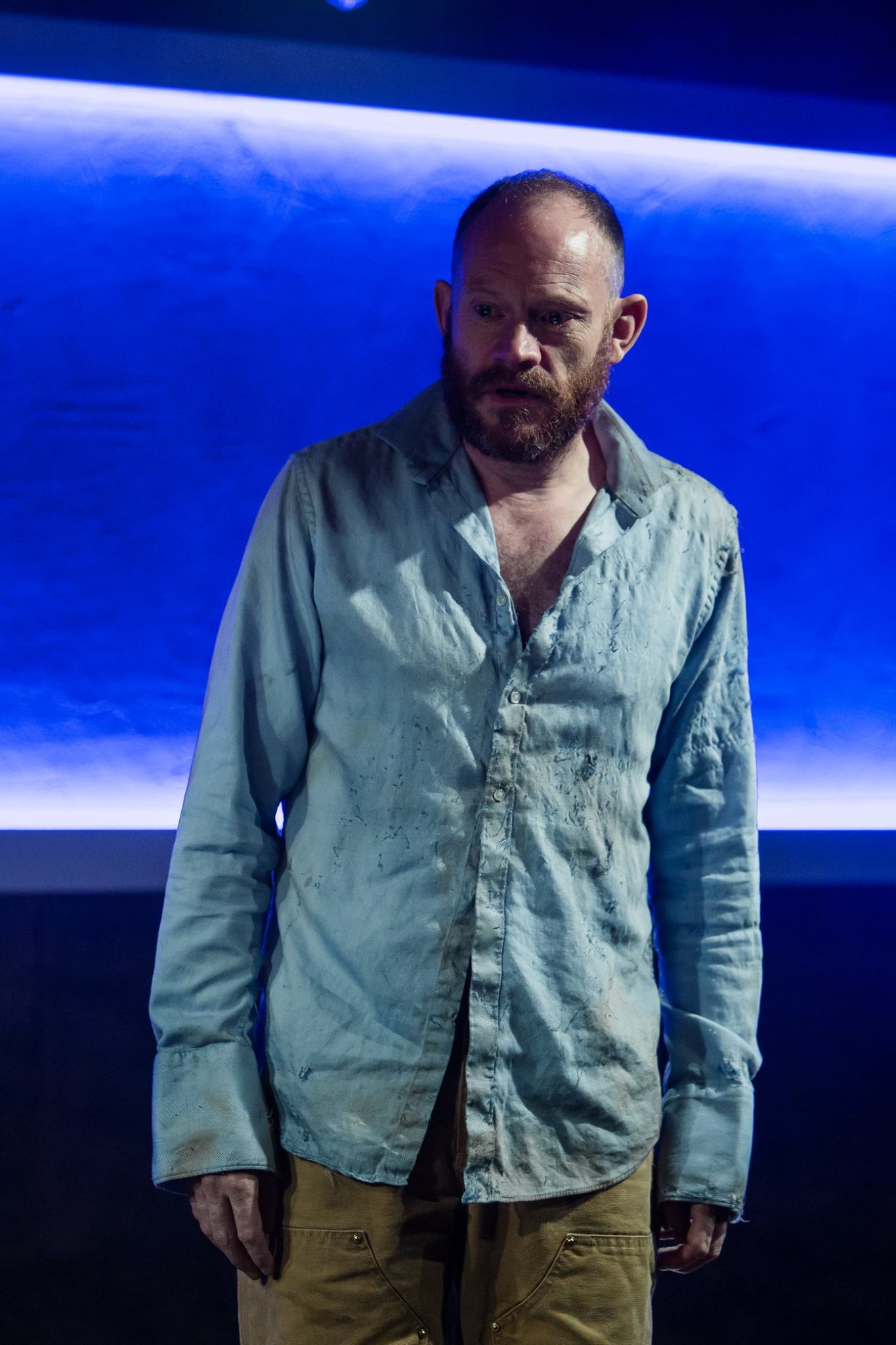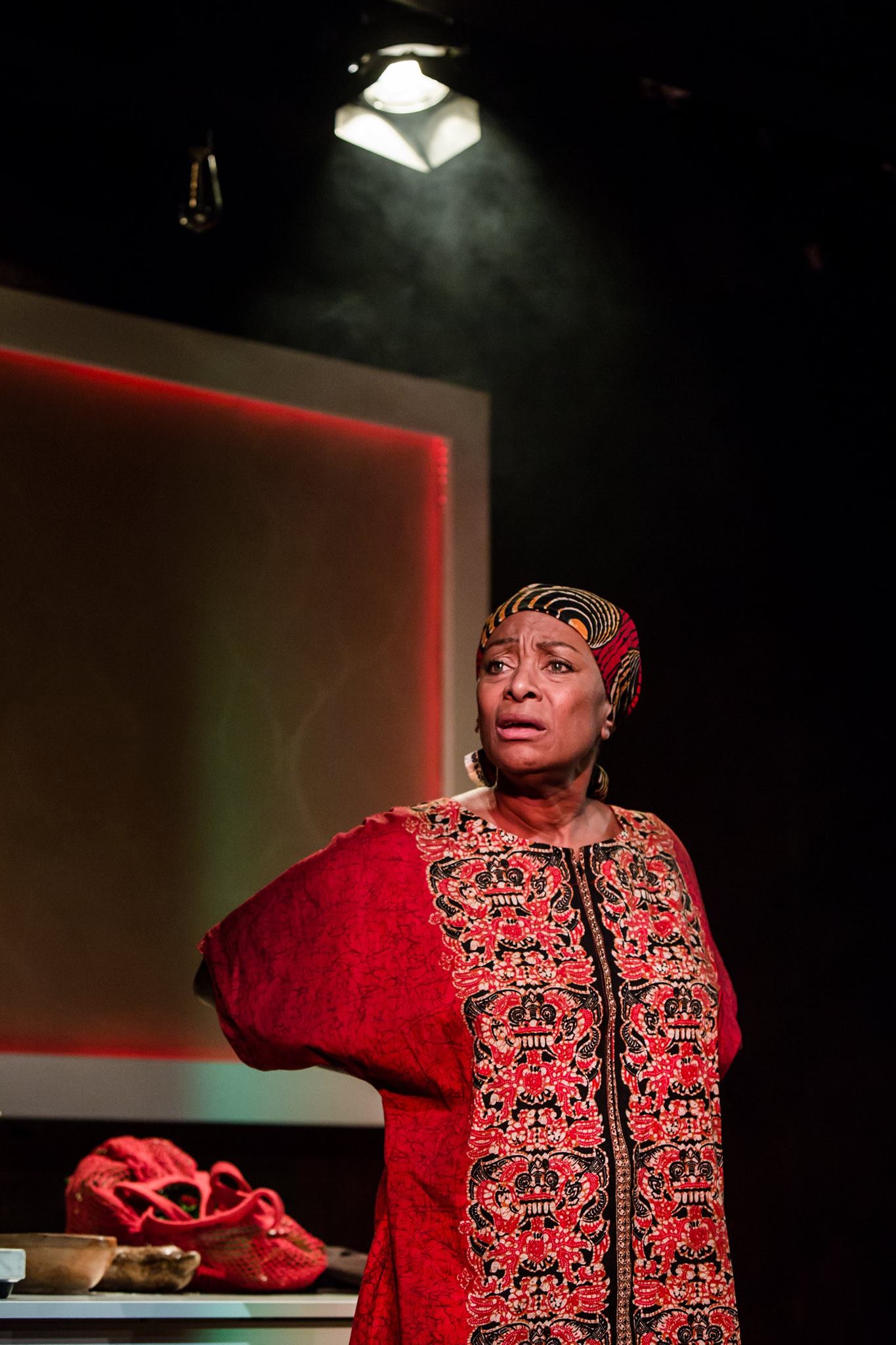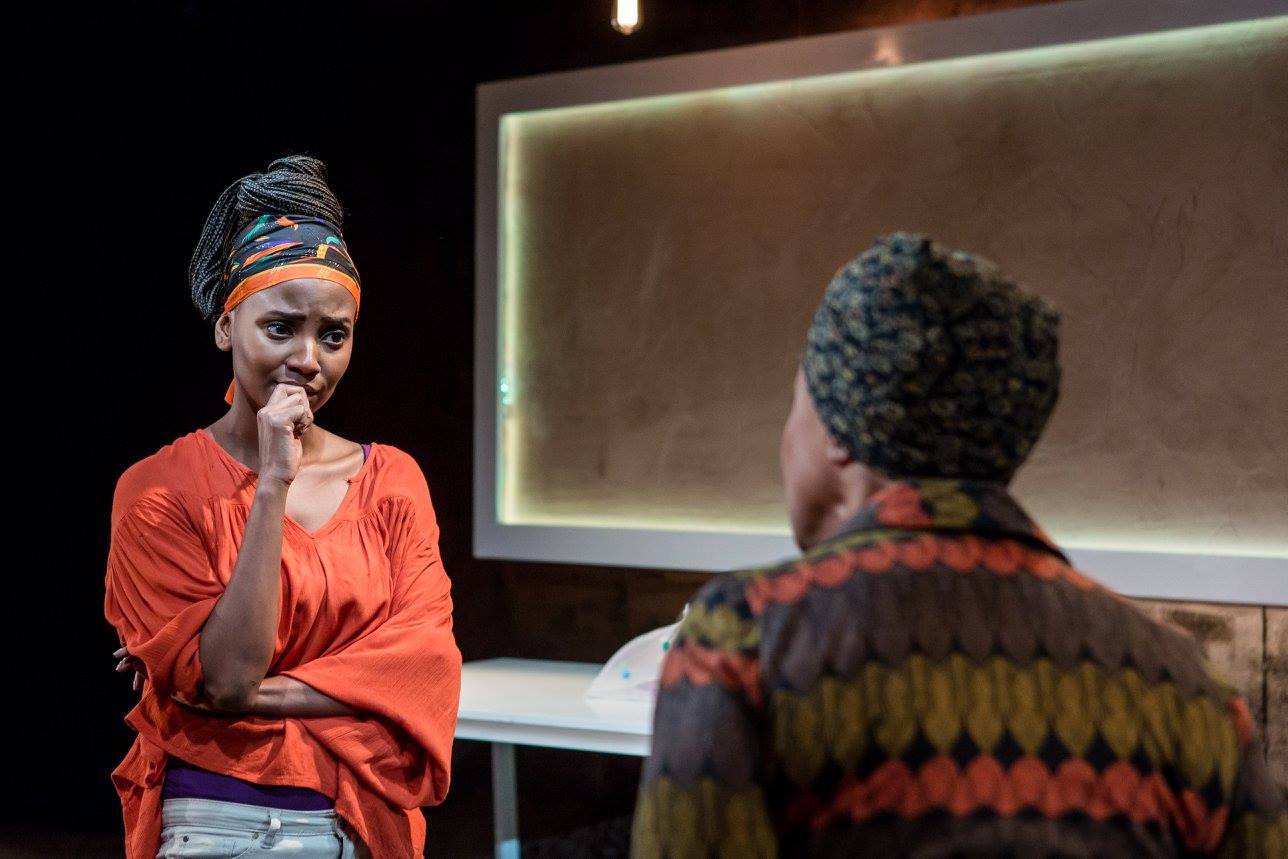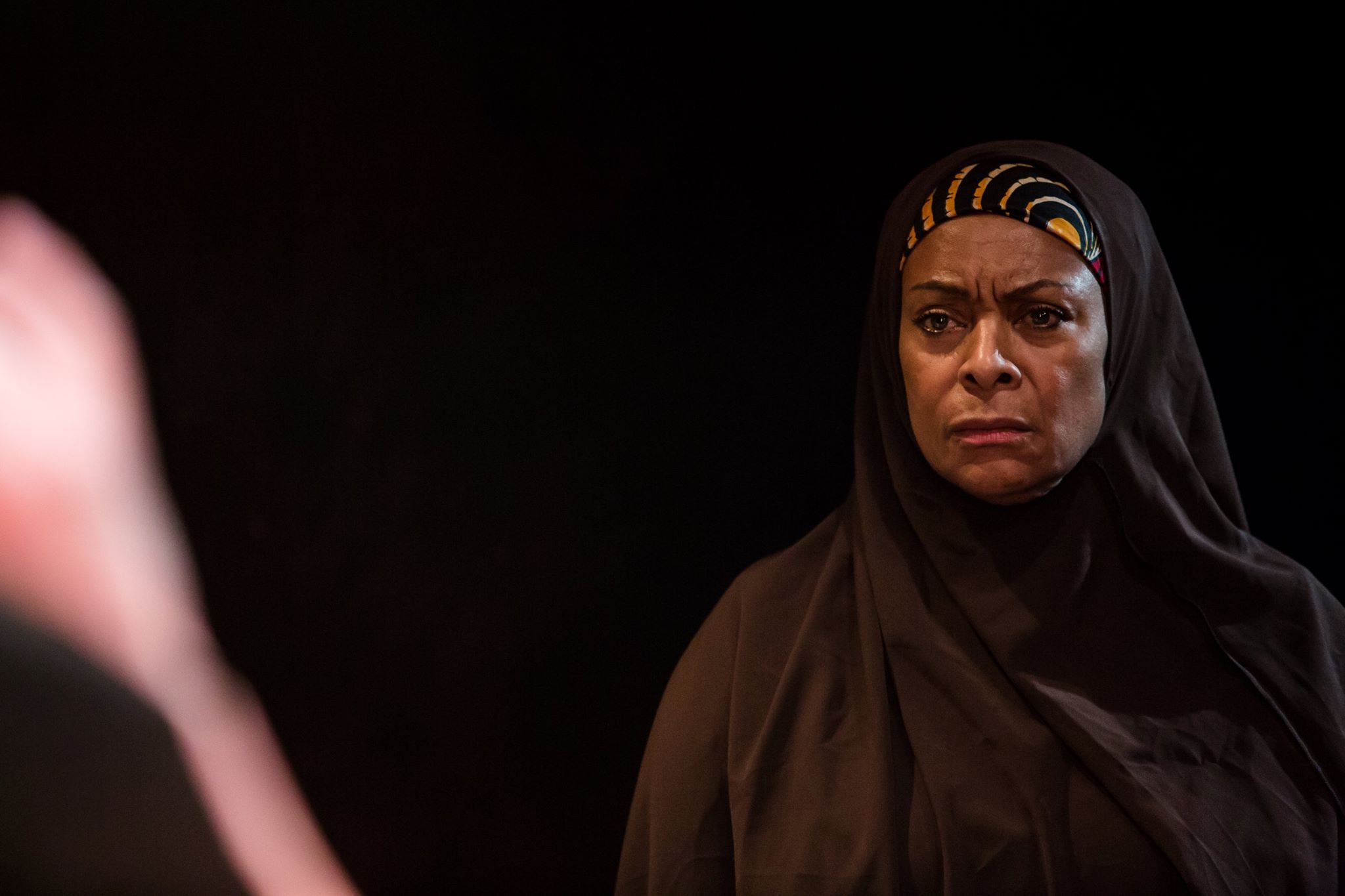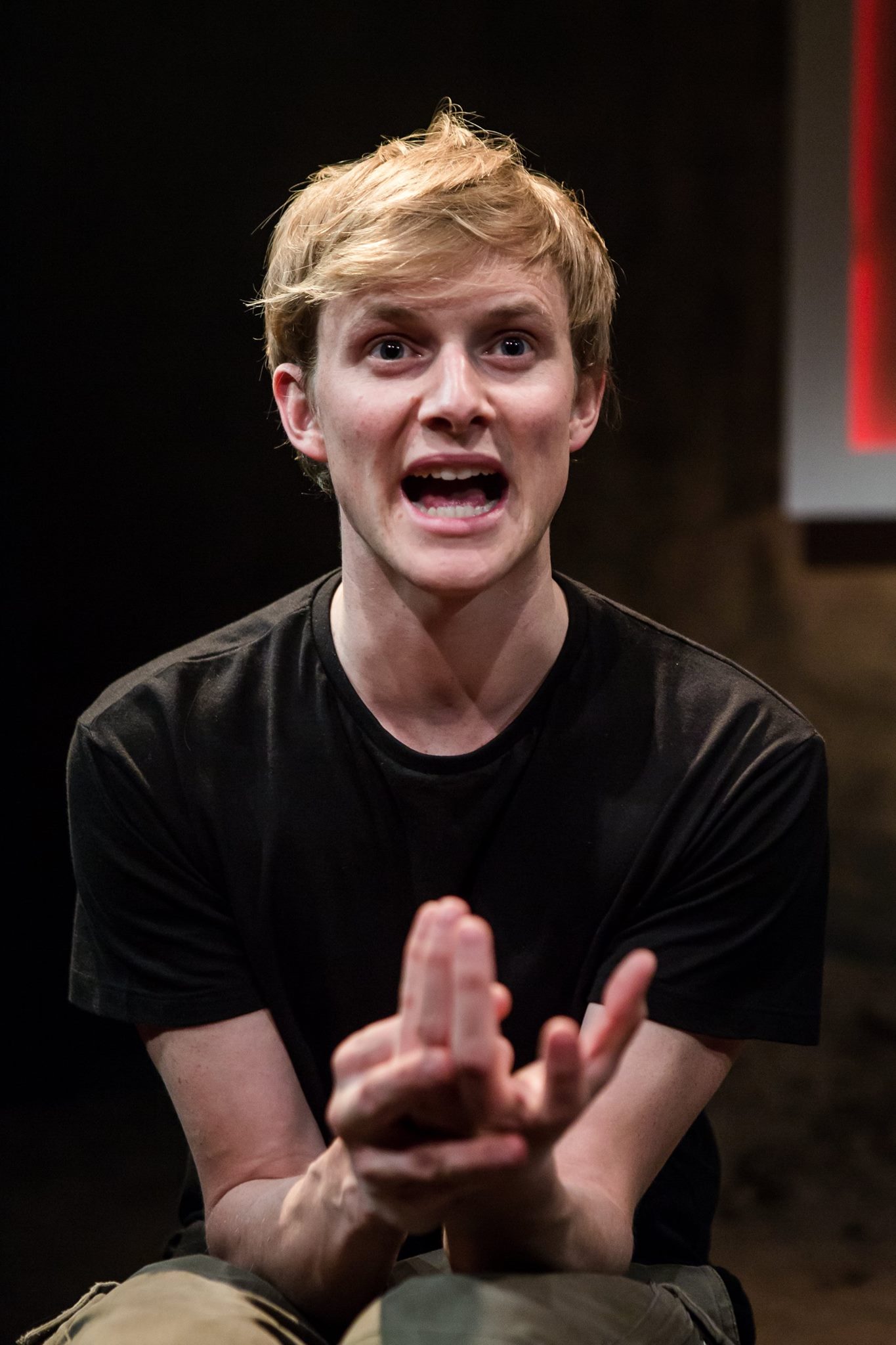Mouthful
Sebastian (Harry Lister Smith) is travelling halfway around the world to find his steak-loving friend who’s missing in Nigeria, while Rashida (Alisha Bailey) just wants to eat her bar of chocolate in peace. GoGo (Robert Hands) is sacrificing everything for a glass of water and Erica (Dona Croll) is trying to win round her daughter’s affections with a rare delicacy – the last potato. But whatever you do don’t try one of Ruth’s carrots…
MOUTHFUL is a darkly comic and at times heartbreaking response to the global food crisis from six of the world’s leading dramatists in partnership with six world-renowned scientists.
Written by Bola Agbaje (Olivier Award for GONE TOO FAR; Royal Court), Lydia Adetunji (Catherine Johnson Award for COMPLIANCE), Clare Bayley (THE CONTAINER; Young Vic), Inua Ellams (THE 14TH TALE and BLACK T-SHIRT COLLECTION; National Theatre), Neil LaBute (THIS IS HOW IT GOES; Donmar Warehouse, SOME GIRL(S); West End) and Pedro Miguel Rozo (OUR PRIVATE LIVES; Royal Court). The playwrights, with support from a Wellcome Trust Arts Award, have teamed up with six world-renowned scientists – Professors Tim Benton, Kamal Bawa, Suzanne Filteau, Ilkka Hanski, Molly Jahn and Tim Lang to collaborate on this politically provocative and theatrically imaginative production.
SHOW DETAILS
Trafalgar Studios
CAST & CREW
CREATIVES
Writer | Lydia Adetunji
Writer | Bola Agbaje
Writer | Clare Bayley
Writer | Inua Ellams
Writer | Neil LaBute
Writer | Pedro Miguel Rozo
Director | Poppy Burton-Morgan
Set, Lighting & Video Designer | William Reynolds
Costume Designer | Charlotte Espiner
Casting Director | Gillian Hawser
Composer (Try Me) | Dominic Gerrard
Cast | Alisha Bailey, Dona Croll, Robert Hands and Harry Lister Smith
SCIENCTISTS
Kamal Bawa. I am interested in biodiversity and global change. The overarching theme of my work is to improve understanding of the impacts of land use and land cover change, climate change and human use of natural resources on biodiversity. Research on sustainable use of ecosystem services, including provisioning services such as non-timber forest products, constitutes an important element of our overall global change research program. I am convinced that science must improve its responsiveness to societal needs. Hence I have led a recent broad-scale initiative to forge consensus on research priorities in tropical biology. I have also served as a member of DIVERSITAS team that has developed a science plan to document and promote agrobiodiversity. At the regional level, I have led efforts to define research priorities in the Western Ghats, a global biodiversity hotspot.
Prof Tim Benton is the “Champion” for the UK’s Global Food Security (GFS) programme, leading, facilitating and coordinating its activities. GFS is a partnership of the UK’s main agencies (government departments, devolved governments and research councils) with an interest in food security. Partners include DEFRA, DFID, Food Standards’ Agency, Health, Business, Innovation & Skills. The role of GFS is to ensure that strategically important research in this area is undertaken, and to add value to research via interdisciplinary collaboration, horizon-scanning, alignment and engagement of different communities of stakeholders. Tim is also a leading researcher, based at the University of Leeds, working on agri-environment interactions and finding ways to make agricultural production more sustainable.
Suzanne Filteau is Professor of International Nutrition at the London School of Hygiene and Tropical Medicine. She has worked for many years on interactions between infection and malnutrition, both macronutrient and micronutrient, among women and children in low income countries. Most of her recent work has been in Sub-Saharan Africa where the high prevalence of HIV infection affects nutritional status in many ways, not only for the people actually infected with the virus but also their families and particularly children of HIV-infected parents.
Prof. Ilkka Hanski is working on the “biodiversity hypothesis” about the rapidly increasing prevalence of allergies, asthma and other chronic inflammatory diseases worldwide but especially in urban environments in the developed countries. The biodiversity hypothesis posits that the reason for the increase in these disorders is the reduced contact of people with natural environments and biodiversity, including food that has not been industrially processed.
Molly Jahn is a professor at the University of Wisconsin-Madison, holding appointments in the Department of Agronomy, the Laboratory of Genetics, and the Center for Sustainability and the Global Environment. From 2006-2011, she served as dean of the University of Wisconsin’s College of Agricultural and Life Sciences and Director of the Wisconsin Agricultural Experiment Station. Based on her contributions to the recent U.S. President’s Council of Advisors for Science and Technology report on agricultural preparedness, Jahn was selected to launch and lead a national student prize for agricultural innovation. She has >100 peer-reviewed publications and 60 active commercial licenses from her plant breeding programs, edited a recent book on Biotechnology and Sustainable Agriculture, serves as Co-editor in Chief of the open access journal BMC Agriculture and Food Security, and on numerous boards and scientific advisory panels around the world including the U.S. National Research Council/National Academies of Science Board on Agriculture and Natural Resources.
Tim Lang has been Professor of Food Policy at City University’s Centre for Food Policy since 2002. He was a hill farmer in Lancashire, England, in the 1970s. This formed his interest in the relationship between food, health, the environment and culture, and he has been engaged in public and academic research and debate about food policy ever since. He has been an advisor to many bodies, ranging from the World Health Organisation to the European Commission. He was a Commissioner on the UK Government’s Sustainable Development Commission (2006-11), with special responsibility to review and improve UK food policy. He played an active part in the beginning of the process of rethinking UK food sustainability, beginning with the Cabinet Office Food Matters review (2008), and following the commodity crisis of 2007-08. He is co-author with Geof Rayner of Ecological Public Health (2012) and with David Barling and Martin Caraher of Food Policy (Oxford University Press, 2009).
GALLERY
REVIEWS
'Poppy Burton-Morgan’s punchy production pulls out all the stops' - The Times
★ ★ ★ ★ ★ 'stirring and moving…one of the most riveting conversations I have ever had the privilege of seeing unravel on stage'- London Theatre1
★ ★ ★ ★ 'Pedro Miguel Rozo’s Organica kicks us off to a strong start' - The Times
'Clare Bayley’s The Protectors is a knock-out, five-star dystopia.' - The Times
'Turned, by Inua Ellams, has to be seen to be believed. Make sure you do.' - The Times
★ ★ ★ ★ - The Londonist





